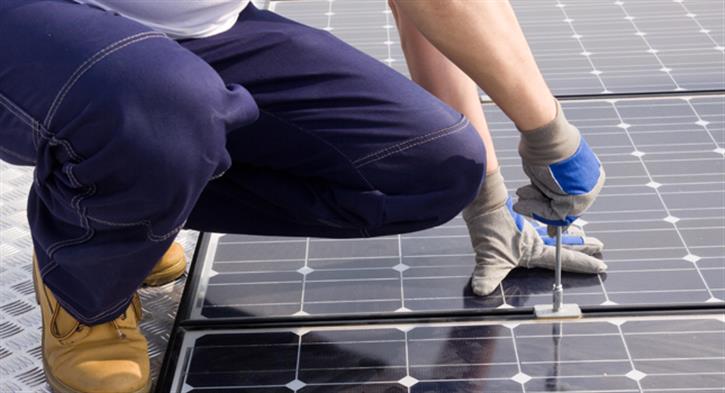

The renewables industry requires immediate backing, NAPIT says, as it encourages the government to maintain its Feed in Tariff (FiT) support.
This would enable the domestic market for solar photovoltaics (solar PV) to continue its push to become cost-neutral and no longer require government funding, the building services membership scheme operator says, providing a stable future for solar PV installers.
NAPIT says the FiT scheme must be kept intact, allowing the continuation of stable growth while managing costs through effective degression.
Infographics summarising the FiT policy and setting out potential risks of the scheme as well as proposals to mitigate them were recently published and can be viewed on the NAPIT website.
The renewable heat market is also receiving a boost through policies such as the domestic Renewable Heat Incentive (RHI) and a £3 million fund announced earlier this year to aid low carbon heating. Nearly 2,000 installers are registered to install renewable heat technologies, with 9,000 fitted over the course of one year.
However, as it stands, the RHI budget is only ring-fenced until March 2016. NAPIT is calling for the government to announce their intention to continue the domestic RHI as soon as possible to ensure installers have long-term certainty and an incentive to invest in the necessary training.
Other changes to the domestic RHI urged by NAPIT are the introduction of third party finance to encourage new sources of investment, the re-alignment of tariffs to ensure the scheme is “technology agnostic”, and the targeting of conventional heating installers with varied training in order to broaden the industry supply chain.
David Cowburn, managing director of NAPIT Certification, said: “We mustn’t let the positivity seen in the renewables industry go to waste.
“If an announcement is made confirming the ambition of the government to continue funding the domestic RHI and the FiT remains in place then there is no reason this growing market can’t become a strong contributor to meeting the UK’s legally binding target of 15% renewable energy by 2020.
“Installers have the opportunity to position and differentiate themselves as industry leaders if they get trained and certified to install these technologies now.”
If you'd like to keep up-to-date with the latest developments in the heating and plumbing industry, why not subscribe to our weekly newsletters? Just click the button below and you can ensure all the latest industry news and new product information lands in your inbox every week.